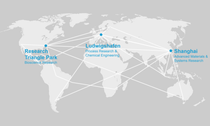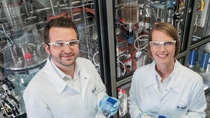Who we are
Our Research and Development
Effective and efficient R&D is a prerequisite for innovation. We are well positioned: With approximately 10,000 employees around the globe, we work on sustainable solutions for our customers every day. We benefit from the growing opportunities that digitalization and supercomputing power offer us.
Our most recent topics and highlights
Our global R&D network
Our three global research divisions are run from our key regions – Europe, Asia Pacific and North America - complementing our customer-facing business segments to form the core of our Know-How Verbund.



